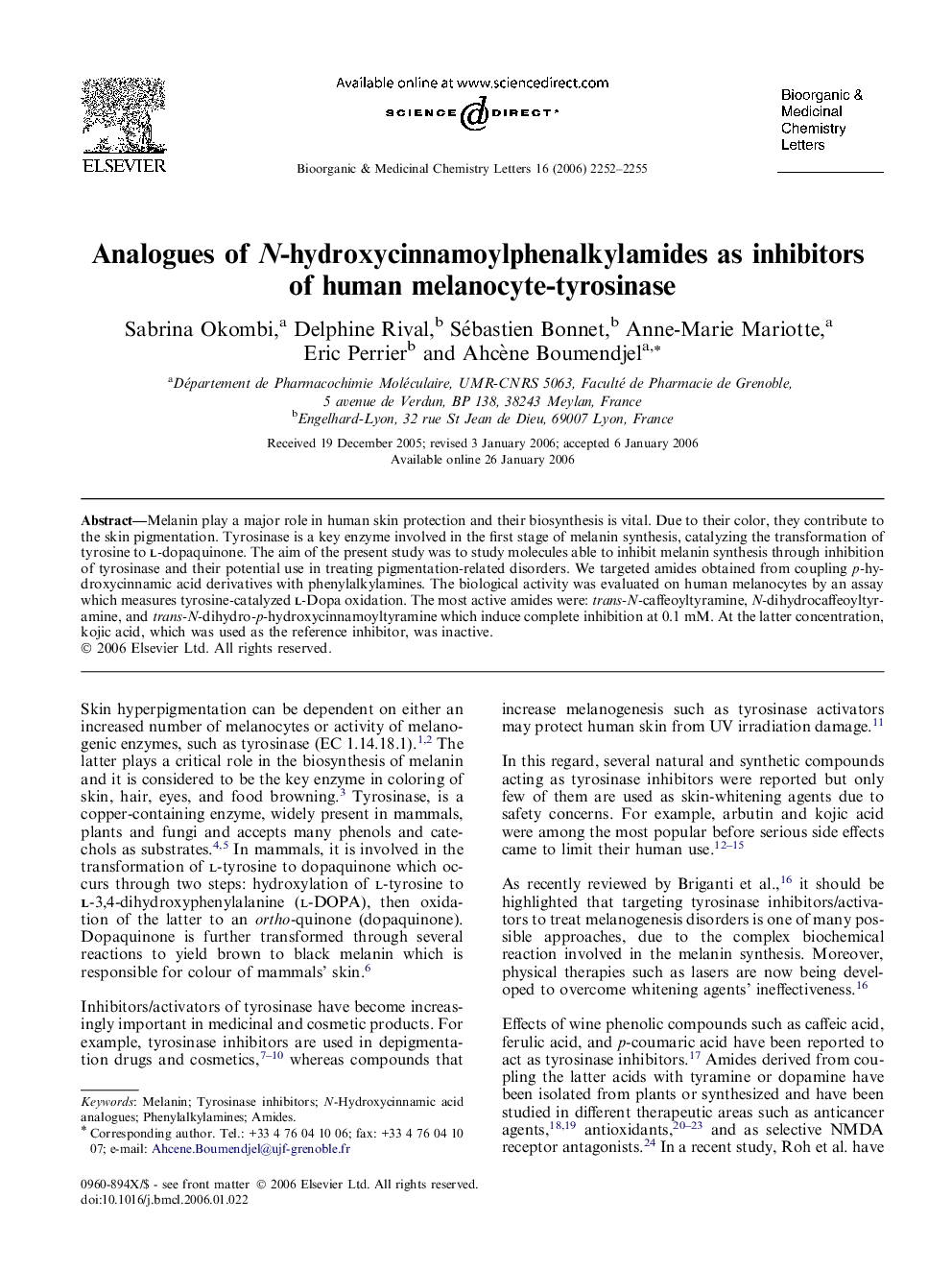| Article ID | Journal | Published Year | Pages | File Type |
|---|---|---|---|---|
| 1374963 | Bioorganic & Medicinal Chemistry Letters | 2006 | 4 Pages |
Melanin play a major role in human skin protection and their biosynthesis is vital. Due to their color, they contribute to the skin pigmentation. Tyrosinase is a key enzyme involved in the first stage of melanin synthesis, catalyzing the transformation of tyrosine to l-dopaquinone. The aim of the present study was to study molecules able to inhibit melanin synthesis through inhibition of tyrosinase and their potential use in treating pigmentation-related disorders. We targeted amides obtained from coupling p-hydroxycinnamic acid derivatives with phenylalkylamines. The biological activity was evaluated on human melanocytes by an assay which measures tyrosine-catalyzed l-Dopa oxidation. The most active amides were: trans-N-caffeoyltyramine, N-dihydrocaffeoyltyramine, and trans-N-dihydro-p-hydroxycinnamoyltyramine which induce complete inhibition at 0.1 mM. At the latter concentration, kojic acid, which was used as the reference inhibitor, was inactive.
Graphical abstractAmides obtained by coupling caffeic acid, ferulic acid, p-hydroxycinnamoic acid, and analogues with substituted phenylalkylamines were evaluated as inhibitors of the human melanocyte-tyrosinase. The most active compounds induce a complete enzyme-inactivation at 100 μM. At the latter concentration, kojic acid, used as a reference, was inactive.Figure optionsDownload full-size imageDownload as PowerPoint slide
